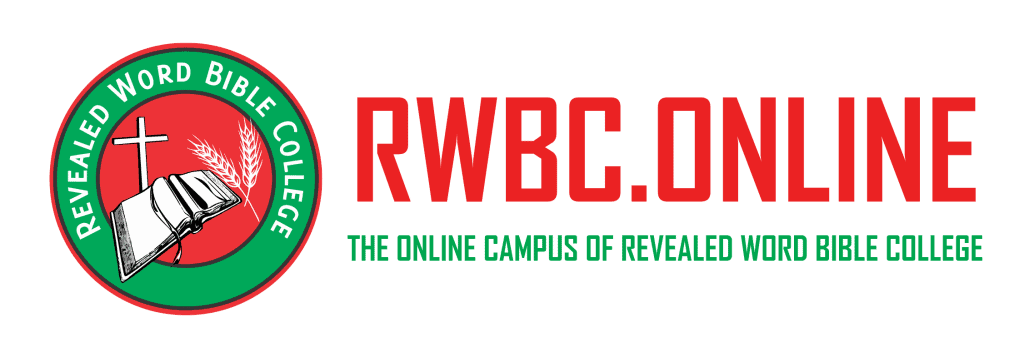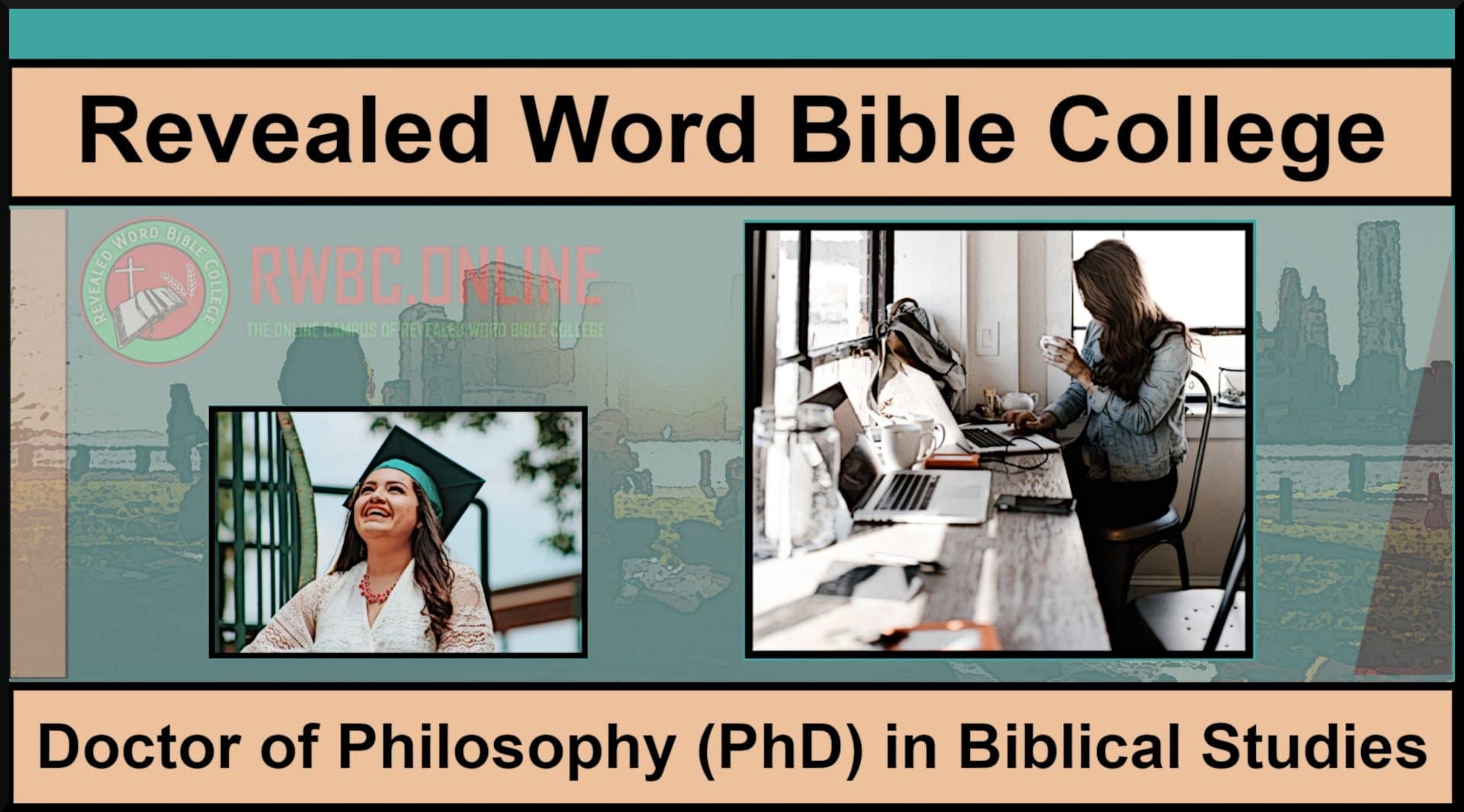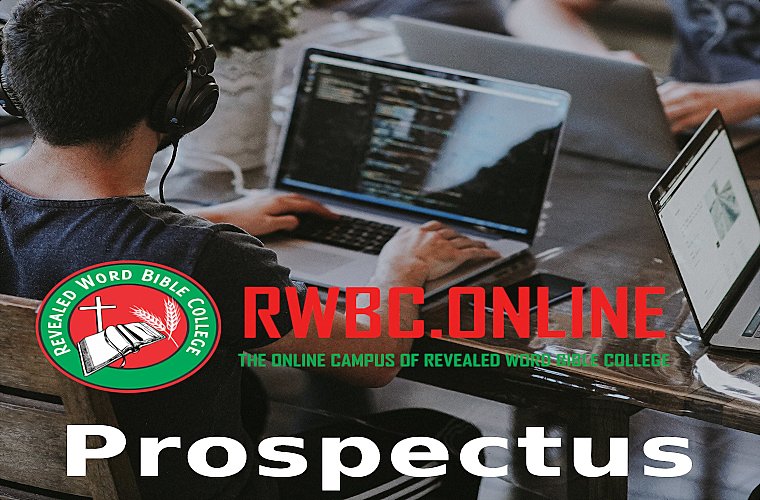The Doctor of Philosophy (PhD) in Biblical Studies is a terminal research doctorate designed to prepare and equip biblical scholars who show exceptional academic promise and teaching potential.
The degree program requires 60 credit hours of study, including the doctoral dissertation. The program is delivered in a blended format, leveraging online technology with face-to-face seminar experiences, resulting in a model of delivery that fits the lives of adult learners.
Candidates will join a cohort of peers who, together, will progress through a prescribed sequence of seminars, develop sustainable habits of scholarly inquiry, and enjoy the benefits of functioning in a cooperative learning environment.
Through the PhD in Biblical Studies, Candidates will achieve a greater mastery of biblical languages, historical backgrounds, and theological frameworks. The program also contains a significant component of seminar work dedicated to the development of mediated and classroom teaching skills for the instruction of adult learners, including learning theory, instructional design, and educational technology. In addition to the more common humanities-based research model for biblical research, students will have the option of focusing their dissertation research in the area of biblical instruction by using empirical methodologies as well as humanities-based research designs.
The integration of these studies and disciplines will enable the candidates to conduct doctoral-level research and will equip them to serve in the educational and ministerial fields which require the highest level of academic degree achievement.
Purpose
The purpose of the PhD in Biblical Studies program is to prepare twenty-first-century professors, teachers, pastors, missionaries, and other types of ministry educators to teach biblical and theological studies in Bible colleges, Christian liberal arts colleges, seminaries, and other teaching contexts and equip them to integrate a significant knowledge of educational technology, adult learning theory, and mediated learning methodology in their teaching role.
Core Competencies
As a result of completing the PhD in Biblical Studies, the candidate will attain an excellent command of the historical, cultural, and linguistic foundations of Scripture. The student will also attain an expert’s ability to apply advanced hermeneutical principles to develop a theology of Scripture and to critically evaluate theological systems. The graduate of the program will then be empowered to serve as a teacher of teachers, employing the most effective and innovative techniques, including computer technology and mediated instruction. The program will also prepare world-class scholars proficient in advanced research methods leveraging cutting-edge computer research techniques.
Expert Biblical Exegete
Deepen and sharpen the student’s ability to exegete Scripture through advanced training in the original languages of Hebrew, Aramaic, and Greek. The students explore the cognate languages and study textual criticism to expand their knowledge and understanding of the wider foundations of Scripture.
Enable the student to comprehend and analyze Scripture against the backdrop of the languages, civilizations, and literature of the ancient world in which the revelation of God was first given to humanity.
Equip the student with exegetical skills needed to effectively discern the teaching of Scripture for the sake of communicating biblical truth to others.
Innovator Of Education
Equip students to think and execute skillfully as classroom and online teachers. Courses focus on the acquisition of the knowledge and skills necessary for comprehending human development processes, learning theory, and the teaching-learning process as they apply to both the classroom and online teaching contexts.
Candidates will gain an understanding of adult learning theory and its effective application to the teaching of adults in the changing higher education environment. Candidates learn how to engage adult learners in face-to-face, online, and blended teaching contexts. Candidates explore appropriate teaching models for adult learners in mediated learning environments. As Candidates employ technological tools and blended learning techniques, they further hone the ability to train others to effectively use the same tools and techniques.
Research Scholar
As a result of completing the PhD in Biblical Studies program, the candidate will gain the ability to think and execute skillfully as a researcher-scholar and author using computer technology. This core competency focuses on the development of research skills necessary in the completion of a research doctoral degree. This is accomplished through three primary means: the foundational research course mentored research and the dissertation sequence.
Candidates may elect one of two approaches to research – the humanities approach most commonly employed in biblical scholarship or an empirical approach often employed in the field of education. Students will take a Biblical Research and Writing Course which includes an introduction to empirical research methods at the beginning of the program.
Biblical Research & Writing Course: This course is taken in the first semester to orient the student to the research and writing methods which will continue to be developed throughout the duration of the program. The student is also introduced to the cohort learning model and participates in collaborative learning processes. The principles established in this foundational course also feed directly into the educational competency as they model the teaching methods from the pedagogical courses.
Mentored Research: All students are assigned a scholar-mentor who will assist them in honing the skill of research. Mentors supervise the student’s research and serve as the chair of the student’s dissertation committee.
Biblical Research Dissertation Sequence: The dissertation sequence consists of four stages: Reading & Prospectus, Chapters 1-2, Dissertation Completion, and Dissertation Defense. Building on the foundation laid in the Biblical Research & Writing Course, this core competency furthers the development of the essential knowledge and thinking skills needed to carry out the entire research process, including identification of the research problem, conducting a literature review, designing of research approach, and writing of the dissertation. It also develops the analytical and critical thinking skills needed to evaluate and interpret research findings. This competency culminates with the writing and defense of a research dissertation.
Biblical Instruction Dissertation Option: Using an empirical approach to research design, students may elect to study aspects of biblical instruction in the mediated learning environment. Each candidate for the PhD in Biblical Studies Instruction Option must complete a dissertation based on the candidate’s own systematic inquiry into an area of advanced research in academic instruction. The dissertation is intended to demonstrate competency in research design, methodology, and the ability to think critically and make a contribution to the literature in the field of study. Special permission is required from the Dean of the Seminary to pursue this dissertation approach. Students who complete this option will substitute Statistics and Empirical Research Methods in place of the research language requirements BIB 907 and BIB 908.
Curricular Design And Distinct Characteristics
This program requires a minimum of three and a half years of study. Students who enroll in the PhD in Biblical Studies degree program will complete 60 hours of academic study consisting of 40 credit hours of core competency seminars and 20 credit hours of focused, research-related study, including comprehensive exams, prospectus preparation, and completion of the dissertation.
Designed For “Life-Engaged” Learners
“Life-engaged” learners are students who are actively engaged in family, church, and professional life while participating in the doctoral program. While the program is intensive in nature, the time required on campus will not necessitate relocation or require students to leave their current leadership context. This is accomplished through an internet-enhanced delivery model. Candidates can earn a PhD in Biblical Studies in as little as three and a half years without leaving their work or ministry, moving their family, or uprooting their life.
A Cohort Community Of Learners
The PhD in Biblical Studies is a cohort-based program. Candidates will enter the program with a group of other Candidates. This cohort follows a prescribed sequence of courses together. Because cohort learning involves a group of students who start and finish their degrees together, students experience a number of educational advantages. Cohort learning, delivered in a blended manner with both face-to-face and Internet enhanced learning, offers one of the most effective learning opportunities available to the doctoral student. Genuine, rich, and deep relationships will be developed through the course of the program as students support and serve each other in the quest for knowledge. As part of a cohort group, doctoral students will be expected to ground their research in a significant and pertinent literature and to share resources with their colleagues in preparation for on-site seminars.
Internet Enhanced Learning
This program combines faculty-mediated online interaction with face-to-face seminar participation. This model enables students to benefit from both types of interaction while maintaining the highest standards of academic quality. Candidates participate in online discussions and other learning activities led by both the professor and fellow students. On-campus interactions involve open dialogue in face-to-face seminar sessions led by nationally renowned and published faculty members.
Using the mediated learning model described above, each course has three learning components.
- Pre-Seminar Component: During the course weeks prior to each seminar, Candidates complete readings and other pre-seminar assignments. During this component of the course, Candidates are required to participate at least three hours each week in online discussions led by the professor.
2. Post-Seminar Component: During the course weeks following the face-to-face component of the seminar, Candidates complete post-seminar readings and research. Students will also participate three hours each week in online discussions led by the professor or Candidates in the cohort.
Program Tuition And Fees
| Non-refundable program deposit (due at acceptance) | $ 70 |
| All-inclusive program fee (includes tuition and all fees) | $3000 |
| TOTAL 2017-18 PROGRAM* | $3070 |
Continuation fees are not included in the cost.
The program tuition and fees include academic fees and tuition charges. Tuition will not rise during the duration of your program. Additional expenses not included are books, software purchased by the student, housing, meals, travel, transcript fees, dissertation binding expense, and continuation fees. Students may elect a payment plan.
Requirements
Content Seminars (40 credits)
Content seminars engage the student in the study and analysis of the pivotal topics in biblical backgrounds, exegesis, hermeneutics and theology, exposition, and pedagogical and andragogical communication skills. Candidates learn both the skill of biblical research and the skill of teaching adults in the blended and online environments.
Comprehensive Exams (0 credits)
Four written comprehensive examinations will be given, one in each of the following areas: biblical backgrounds, exegesis, hermeneutics, and theology. Doctoral students must complete the comprehensive examinations successfully before the dissertation prospectus can be approved.
Dissertation Series (20 credits)
The Candidates follow the dissertation courses 915-918 leading to dissertation completion.
Course Descriptions
BIB 901 Advanced Biblical Research & Writing
This course focuses on original research skills necessary for the development of a PhD dissertation. These skills include collecting empirical data, researching topics in foreign languages, sufficiently detailed documentation, and research methods. Students will complete research assignments in the area of dissertation interest.
BIB 902 Learning & Teaching: Theory & Practice
This course is an examination of major theories of learning and their application to teaching methodology and curriculum design. The course provides an understanding of the role of teaching and learning for the purpose of educating a diverse group of students in biblical studies. Additionally, this course prepares students for teaching in a Christian higher education context.
BIB 903 OT Backgrounds
This course will explore languages, literature, and cultures of the Ancient Near Eastern civilizations related to the Hebrew Bible. Students will be exposed to Aramaic, Akkadian, and Ugaritic. Ancient inscriptions, contracts, and a variety of religious texts will be read to enhance a student’s understanding of the OT. The impact of archaeological discoveries on the current understanding of the OT will be studied.
BIB 904 NT Backgrounds
This course will explore languages, literature, and cultures of the Intertestamental and New Testament periods. Intertestamental literature, including the Septuagint, will be read to enhance a student’s understanding of the New Testament. A variety of background areas will be studied including, but not limited to: religion, philosophy, language, economics, and politics. The impact of archaeological discoveries on the current understanding of the NT will be studied.
BIB 905 OT Exegesis
Students in this course will develop advanced skills in exegeting the Hebrew Bible. Various passages of the OT will be translated, analyzed, and outlined, both exegetically and homiletically. A research paper related to the student’s dissertation interest will be developed and critiqued by the cohort.
BIB 906 NT Exegesis
Students in this course will develop advanced skills in exegeting the Greek Bible. Various passages of the NT will be translated, analyzed, and outlined, both exegetically and homiletically. A research paper related to the student’s dissertation interest will be developed and critiqued by the cohort.
BIB 907 OT Hermeneutics & Theology
Candidates in this course will study advanced topics related to the interpretation of the Hebrew Bible. Topics include, but are not limited to: Hebrew poetry, wisdom literature, discourse analysis, prophetic literature, and apocalyptic literature. Various aspects of theology will be studied across the genre of pastiche. The writing project of this course will integrate the core competencies developed in the program and will be in the area of dissertation interest.
BIB 908 NT Hermeneutics & Theology
Students in this course will study advanced topics related to the interpretation of the Greek Bible. Topics include, but are not limited to: rhetorical criticism, epistolary literature, parables, Gospels, and apocalyptic. Various aspects of theology will be studied across the genre palette. The writing project of this course will integrate the core competencies developed in the program and will be in the area of dissertation interest.
BIB 909 Cohort Elective 1
With the guidance of the director of the PhD in Biblical Studies program, each cohort will select a subject for in-depth study which matches the needs and interests of the cohort. Possible topics include but are not limited to, church history, specific theological studies, Hebrew poetry, and textual criticism.
BIB 910 Cohort Elective 2
With the guidance of the director of the PhD in Biblical Studies program, the cohort will select a second subject for in-depth study. The course will match the needs and interests of the cohort.
BIB 911 Contemporary Instructional Methods & Design
This course focuses on the methodology of constructing courses for adult learners in online and blended formats. Students will explore the relationship between technology, research, learning, and teaching and will learn how to teach effectively in online and mediated environments. This course prepares students to apply these methods in a Christian higher education context.
BIB 912 Comprehensive Exam Preparation
Completion of this course is required prior to taking the comprehensive exams. Written comprehensive examinations will cover the areas of Bible backgrounds, exegesis, hermeneutics, and theology. Doctoral students must complete the comprehensive examinations successfully before the dissertation topic can be approved and research can begin. Course content from the PhD in Biblical Studies is studied in a collaborative manner with the goal of being a comprehensive review.
BIB 913 Dissertation IA: Reading & Prospectus
Under the guidance of the faculty mentor, students will choose a dissertation topic and develop a prospectus that presents the student’s research questions and strategy. After developing the prospectus, students will defend it in an open hearing. If the prospectus is approved, the student may proceed to Dissertation IB.
BIB 914 Dissertation IB: Chapters 1-2
After securing topic approval in Dissertation IA, students in Dissertation IB will focus on developing the first two chapters of the dissertation with oversight from the faculty mentor. Once the first two chapters have been approved by the Dissertation Committee, the student may proceed to Dissertation II: Completion.
BIB 915 Dissertation II: Completion
In Dissertation II: Completion, the student continues to write the final dissertation chapters with oversight and feedback from the Dissertation Committee. Dissertation II may be taken more than once. Students must be continually enrolled in Dissertation II until their dissertation is complete.
BIB 916 Dissertation Defense
After completion, the PhD student defends the final dissertation in an open hearing. Once the Dissertation Committee has approved the dissertation, the student is recommended for graduation.
BIB 917 Empirical Research & Statistics
Critical thinking and reflection processes are explored and are applied to research evaluation and interpretation using basic statistical concepts. Students develop the knowledge, skills, and disposition for critical inquiry and research development, preparation, analysis, interpretation, and evaluation.
Admission Requirements And Application Process
Admission Requirements:
Applicants must hold an earned and accredited master’s degree in an appropriate and related field, with coursework equivalent to either a Master of Divinity or a master’s degree with a thesis. Candidates who have other master’s degrees may appeal this requirement to the Program Director.
Applicant’s transcripts must reflect a background in biblical studies, theology, biblical language, and ministry studies. Those applicants who have not completed sufficient coursework in biblical, biblical language, theological, and ministry studies will be required to complete “leveling” work to prepare the applicant for the biblical and theological component of the program.
Applicants must submit a writing sample of 15 pages or longer. The sample must be written at the master’s level on a biblical or theological topic.
Applicants with a Th.M degree may apply for Advanced Standing. Students who are admitted and approved for Advanced Standing may be exempted from up to three courses. The exact number and type of courses for exemption are selected by the committee based on the specific details of the student’s educational background. For some students, it may be possible to complete the program with 48 hours of coursework instead of the standard 60 hours.
Applicants must hold a minimum cumulative grade point average of 3.25 in previous master’s level work. Students may appeal this requirement to the Program Director.
The student must obtain employer permission to enter the program. An Employer Permission form must be on file as part of the application process.
Applicants with deficiencies in required areas may appeal to the Program Director. The Program Director and the Admissions Committee will review the application and may admit the student on a provisional basis. Students admitted on a provisional basis must meet the requirements set forth by the Program Director and the Admissions Committee in the time allotted in order to remain in the program.
Application Process
In order to complete an application to the PhD in Biblical Studies program, the applicant will need to complete the following.
Complete the PhD Program Application.
Pay the $70 non-refundable application fee.
Submit additional documents:
Official transcripts from all degree-granting post-secondary schools attended
Graduation Requiremenst
In order to graduate with the PhD in Biblical Studies degree, the candidate must have fulfilled all of the following:
Complete all coursework with 70 % or above in all seminars.
Successfully complete all the dissertation requirements
Fulfill all financial obligations to RWBC Complete the program within the statute of limitations period as identified in the PhD in Biblical Studies Handbook.
This course is currently only available at our live campuses and our distance learning program through emails.










